
Exit strategies and state building: an interview with Richard Caplan
Professor Richard Caplan, of the DPIR, Oxford, and editor of the new book Exit Strategies and State Building, talks to Politics in Spires about the book itself, the practice of internationally-led state-building and strategies for exit. In this interview, Professor Caplan talks about the practical and normative changes that have taken place in the international arena which this book has responded to and deals with some of the most pertinent issues faced by the international community when attempting to undertake state-building projects.
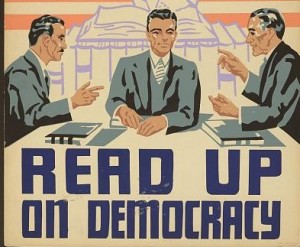
Finding the future of democracy in the past
There are two different questions that might be asked about contemporary democracy: how did we get here? And where else might we have tried to get? A great deal of the ‘history of democracy’’ is written in the former mode, with the classical world and subsequent periods being identified as steps in a path towards a modern democratic world in which the people elect their governments and hold them accountable to greater or lesser extents. In Britain, the normal staging posts identified are the Levellers, the 1790s, the Great Reform Act, and the suffragist movement. In America they are the Declaration of Independence in 1776, the Federal Constitution of 1788, Jacksonian Democracy in the 1830s, the Civil War, and the Voting Rights act of 1965. In France, the French Revolution, 1830, 1848, 1871, 1836, and 1944. Ireland has far fewer dates!
This sort of history is in effect being written backwards; it is a history of the present and how we got to it, not a history of the past, and what we might have fought for. One mark of this approach is that relatively little attention is given to the language people actually used; if we think their aspirations were democratic then it is assumed that we can describe their goal as democracy, even if they didn’t use the word. Moreover, since we link democracy to elections, we assume that the history of democratic aspiration was primarily a story of struggle over the suffrage. But much of this does violence to the evidence.
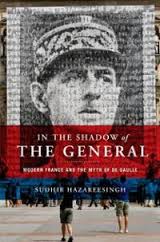
De Gaulle’s lasting influence: A Q&A with Dr Sudhir Hazareesingh
Sudhir Hazareesingh talks to Gavin Jacobson about his recent book, In the Shadow of the General: Modern France and the Myth of de Gaulle (New York, Oxford University Press, 2012).
Gavin Jacobson (GJ): Perhaps you could begin by telling us about what led you to start thinking more closely about Charles de Gaulle, and why you decided to write this book.
Sudhir Hazareesingh (SH): When I was finishing my book on the Napoleonic legend, I concluded that since the 1980s, General de Gaulle had become France’s favourite national hero. I found this intriguing, especially as de Gaulle seemed to have been adopted by the Left, who had opposed him vigorously for much of his time as president. So I thought it would be interesting to explore how and why this situation had come about – and also how this Gaullist cult compared with its Napoleonic predecessor. So this is what the book eventually became: a study of what de Gaulle has come to mean to the French, and what his iconic status tells us about French political culture.
GJ: Could you give us some idea of what you mean by ‘myth’? How is your understanding of it here different from the way people like George Sorel have previously defined it, for instance?
SH: I use ‘myth’ to denote an idealized representation of a phenomenon, either by a collectivity as a whole, or within a specific ideological framework – it can refer to a historical moment, like the French Revolution; certain moral and political values (‘we are a freedom-loving people’); exemplary social groups like the bourgeoisie or the proletariat; or leaders like Napoleon or de Gaulle. Sorel’s notion is more normative, and also more narrowly focused, in the sense that he is talking about how certain political ideals can help collective mobilizations to bring about revolutionary change. I think of myths as a much broader category, and they are not just about transformation: a powerful myth can also prevent substantial change (see the monarchy in Britain today!). I think myth is a useful concept for the social scientist because it opens up new avenues for analysis. Politics is too often thought about purely in ‘rational’ terms, as a function of interests – the concept of ‘myth’ is helpful to understand what role memory, imagination, and passion can also play in politics.
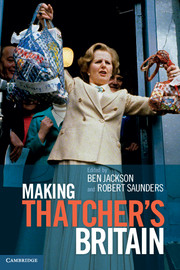
‘Making Thatcher’s Britain’: an interview with Robert Saunders
Robert Saunders is co-editor (together with Ben Jackson) of Making Thatcher’s Britain. He teaches History at Jesus College, Oxford, and Politics at Lincoln College. I really enjoyed Making Thatcher’s Britain. Can I start by asking a biographical question about Thatcher before we get to the book — how did she come to lead her party in 1975? Was it a result of a careful campaign or happenstance? There was a degree of good fortune to the affair. If Ted Heath had resigned a year earlier, or if Keith Joseph had run in 1975, Thatcher would not have been a candidate. She won partly because of a brilliant campaign organisation, and partly because she was the only one willing to challenge such a dominant leader. But …
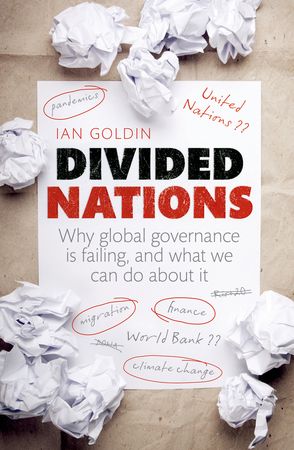
Divided Nations: Why global governance is failing, and what we can do about it
The growing disconnect between the problems that bind us and the countries that divide is the greatest threat to humanity. Each day we are confronted by mounting evidence of the yawning governance gap. Recently, British people have been surprised to find their meat has been through the mincer of multiple legal jurisdictions through which beef has been blended with horse. Russians have been shocked by a meteorite that crashed unannounced into their territory, due to the failure of global coordination of space. In Tokyo, a bluefin tuna was auctioned in Tokyo for USD$1.7 million, raising concerns globally that market signals may be hastening the extinction of rare tuna. And in the United States, Hurricane Sandy’s impact on lower Manhattan and the New Jersey shore has raised interest in the work of scientists who identify freak storms as an early warning of climate change. Meanwhile, across Europe the aftermath of the financial storm continues to destroy jobs and livelihoods.
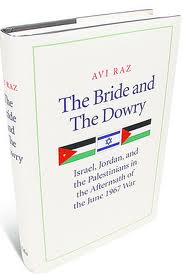
The Bride and the Dowry: Israel, Jordan, and the Palestinians in the Aftermath of the June 1967 War
On Wednesday 24th October, Oxford’s Dr Avi Raz delivered a talk at the DPIR in order to launch his new book, “The Bride and the Dowry: Israel, Jordan, and the Palestinians in the Aftermath of the June 1967 War”. The book – an expansion of his doctoral thesis – is a well-researched account of events surrounding one of the most important periods in the history of the Middle East: one which saw Israel secure a resounding victory over the Arab armies in the six day war, therein gaining territory 3 times the size of its nation and, after 2000 years, returning a united Jerusalem to Jewish authority.
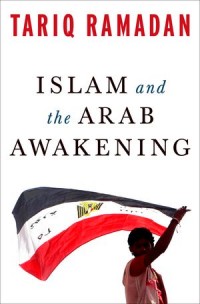
Islam and the Arab Awakening: Five things we should know about the Libyan and Egyptian demonstrations
We must start first by condemning the violence and killing of diplomats and civilian people. Whatever we may feel, however we may be hurt by the video, it cannot justify in any way the killing of people. Such actions are simply anti-Islamic and against Muslim values. The demonstrations were in fact first organised by a tiny group of Salafi literalists who were attempting to direct popular emotions against the United States and the West in order to gain for themselves a central religious and political role.
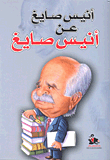
Anis Sayegh: The autobiography of a Palestinian Intellectual
In recent years we have seen the publication of a series of Palestinian life stories including, among others, the ‘Incomplete Autobiography’ of Yusif Sayigh (2009) and the autobiography of Shafiq al-Hout (2007). The subject of this review is also found within this series; the autobiography of Anis Sayegh, entitled Anis Sayegh ‘n Anis Sayegh, which was released in Beirut by Riad El Rayyes in 2006. The autobiography of Anis Sayegh describes his life from early childhood in the 1930s to the early 2000s. It consists of nine chapters. In the first chapter we learn that Anis Sayegh was born in November 1931 in Tiberias, the youngest of seven children in a traditional Protestant Christian extended family. His father originally came …









